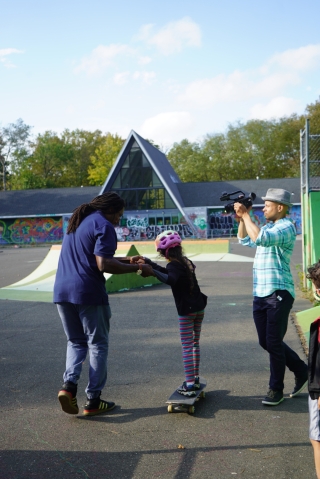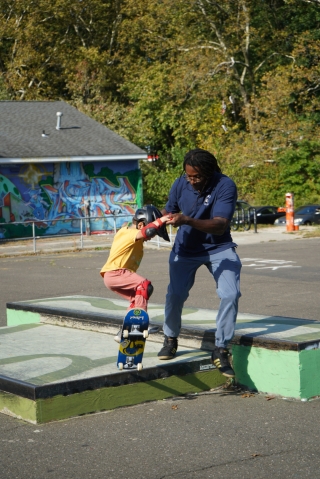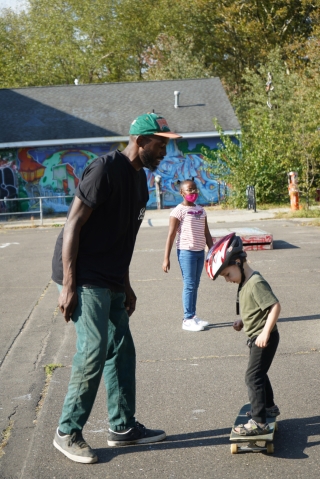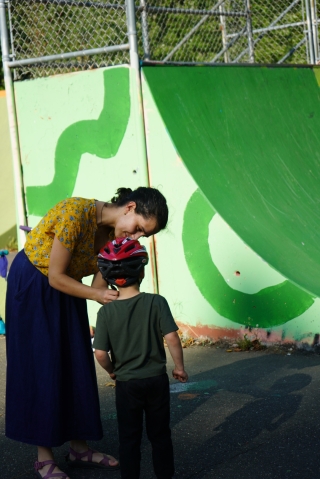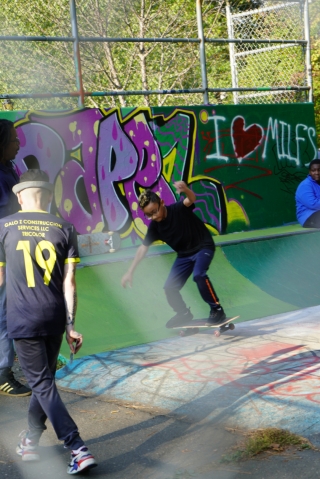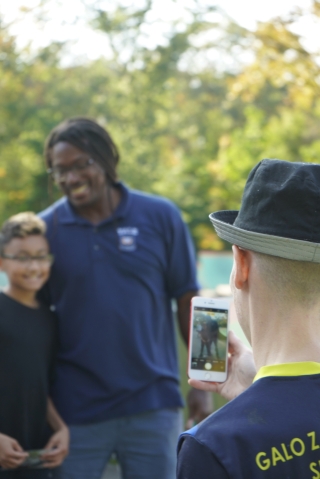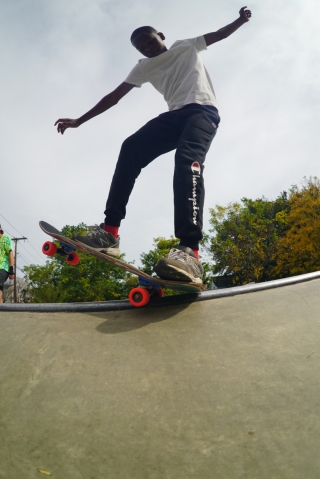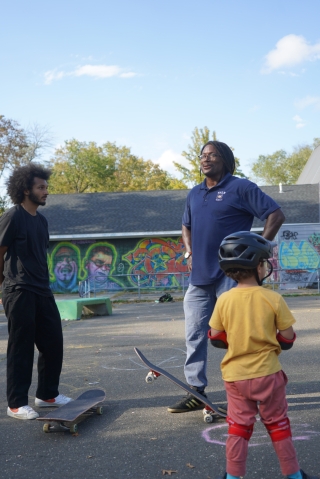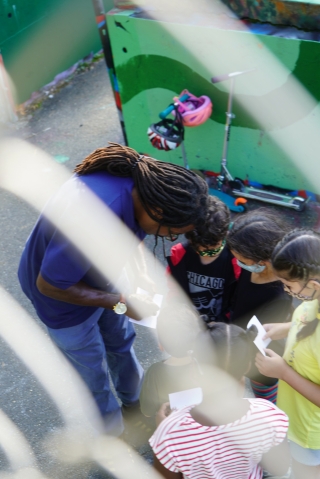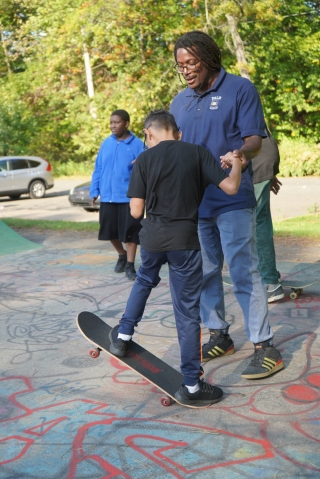Fresh from its Olympic debut, skateboarding has emerged from the underground, revealing a vibrant and inclusive community that celebrates individual creativity as a rallying cry for the entire collective. Finding a Line New Haven unveiled a new moveable skate bowl at 25 George Street to serve not only as an open-sourced living sculpture but also a hub for skateboarding, arts, and civic engagement.
Bringing the critically acclaimed Finding a Line: Skateboarding, Hip-Hop and Community initiative to New Haven has been the dream of local community organizers and skateboard aficionados J. Joseph YC’19 and Steve Roberts. “Finding a Line New Haven is part of a broader initiative that started in the DC area that brought skateboarding and the arts together in a collaborative and improvisational way,” said Joseph of Finding a Line New Haven. As a collaboration between Yale Schwarzman Center, City of New Haven, and Artspace, that dream is becoming a reality.

